
Local SEO for Ecommerce: Key Components and Importance
Are you ready to boost your local visibility and attract more nearby customers? Local SEO for ecommerce connects your online store with local buyers searching for your products and services.
In this article, we will explore the key components and importance of ecommerce local SEO.
Key Takeaways
-
Google Business (GMB) helps improve search rankings for the local.
-
Consistent NAP information builds trust with search engines.
-
Local keywords and local backlinks help enhance your store's relevance.
-
Optimize your Magento website with location-specific content and calls to action.
-
Track your Local SEO performance using key metrics like search rankings for the local.
-
How Can I Optimize My Ecommerce Website for Local Search Queries?
-
Metrics to Measure the Success of Ecommerce Local Seo Campaign
What is Local SEO for Ecommerce?
Local SEO for ecommerce focuses on optimizing an online store to attract local customers from specific geographic areas.
Local SEO involves strategies like:
-
Optimizing a Google Business Profile
-
Ensuring consistent business information (NAP)
-
Using local keywords
-
Earning local backlinks
Local SEO helps businesses with physical locations or those targeting specific regions. It also makes them appear in relevant local search results. It helps :
-
Drive more localized traffic
-
Improve visibility
-
Increase sales from nearby customers searching for products or services, such as “buy electronics in [city name].”
Local SEO helps bridge the gap between online and offline presence.
Key Components of Ecommerce Local SEO
1. Google My Business (GMB) Optimization
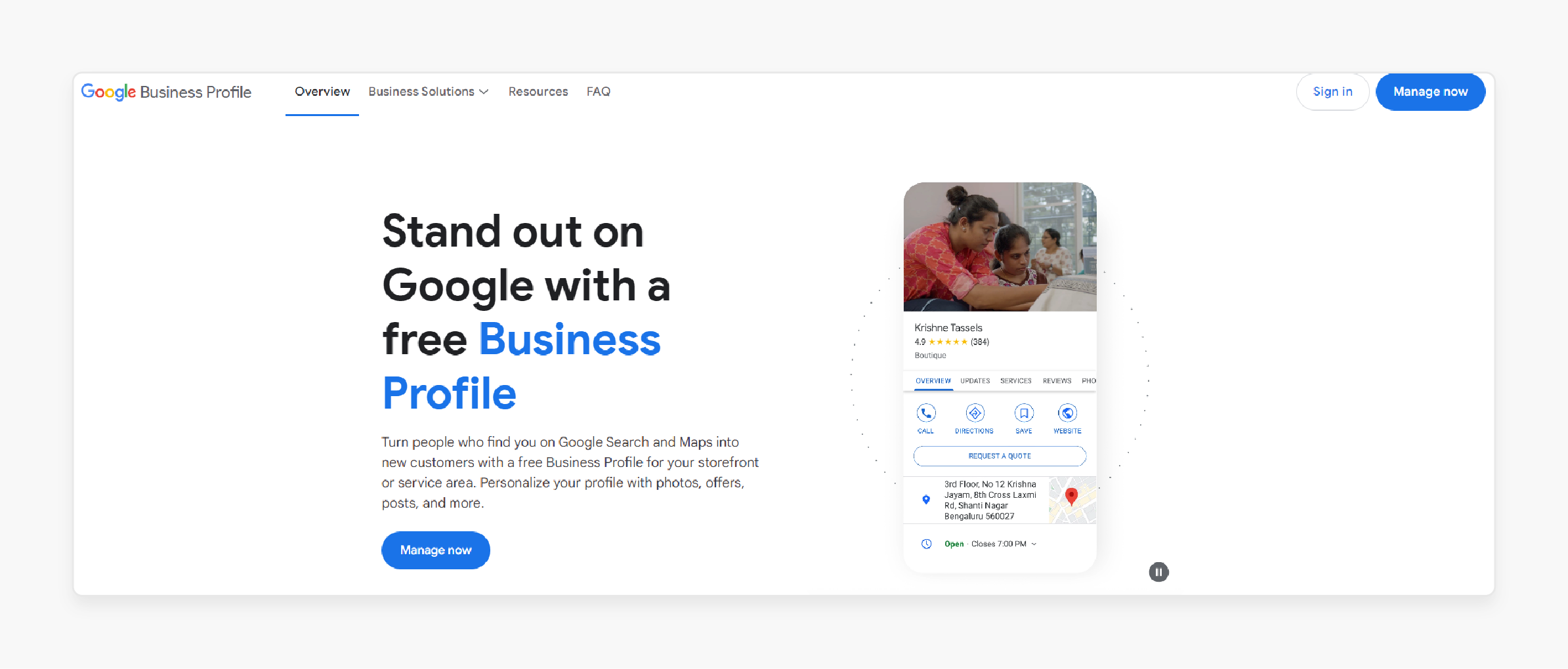
-
Your GMB profile ensures local SEO success. Ensure accurate listing of your:
1. Business name
2. Address
3. Phone number
4. Hours of operation
5. Services
6. Relevant categories
-
You should:
1. Add high-quality images
2. Respond to customer questions and reviews
3. Keep your profile updated
-
It helps improve your chances of appearing in the Google "Local Pack,." It showcases top local businesses in map results to help drive nearby traffic.
2. Consistent NAP Information
-
Search engines prioritize businesses that have consistent NAP information across the web. It includes:
1. Name
2. Address
3. Phone
-
If your details differ on various platforms, including:
1. Website
2. Social media
3. Directories like Yelp
-
It can confuse search engines and reduce your local search visibility.
-
Make sure your NAP is the same on all the platforms. It ensures accuracy and trustworthiness in the eyes of search engines.
3. Local Keywords
-
Use geo-targeted keywords in your:
2. Titles and meta tags
3. Content
-
It helps ensure that your store shows up in searches for local.
-
For example, if you sell shoes in Los Angeles, use keywords like "best shoe store in Los Angeles" or "buy shoes in LA".
-
It allows search engines to understand that your store serves a specific region. It allows search engines to understand that your store serves a specific region. For many retailers, aligning keyword strategies with insights from a marketing agency for retail businesses can help ensure local search efforts support larger customer engagement goals.
4. Local Backlinks
-
Backlinks act as "votes of confidence" for search engines from:
1. Reputable local businesses
2. Organizations
3. News outlets
-
Building relationships with local blogs, websites, or community organizations and using professional link building services to support this effort can increase your authority and local relevance.
-
It helps improve your chances of ranking in search results for locals.
5. Customer Reviews
-
Customer reviews not only help build trust with potential buyers. It also signals to search engines that your business is reputable.
-
Encourage satisfied customers to leave positive reviews on platforms like:
1. Google
2. Yelp
3. Industry-specific directories
-
More positive reviews can lead to higher visibility in search results for locals, especially for "near me" queries. It also increases your chances of being selected by potential buyers.
6. Local Listings
-
Submitting your business to reputable online directories helps build your search presence locally.
-
These directories often appear in search results themselves. Having your business listed on them can increase your chances of showing up in search queries for the local.
-
It also reinforces your business's legitimacy to search engines. It boosts your overall local SEO efforts.
Difference Between Ecommerce Local SEO and Organic SEO
| Aspect | Ecommerce Local SEO | Organic SEO |
|---|---|---|
| Focus | It targets local customers within a specific geographic area, such as a city or region. | It targets a global or national audience without geographic limitations. |
| Key Strategies | Optimizing your Google Business Profile. Ensuring consistent NAP (Name, Address, Phone) information Building local backlinks Gathering customer reviews Using location-specific keywords | Content creation On-page optimization, like improving meta tags, alt text, and internal linking Off-page strategies like link-building Technical SEO efforts like site speed and mobile-friendliness Broad keyword research |
| Geographical Relevance | It is highly focused on queries that include location-specific terms. | There is no geographic focus; It is for relevant keywords without any location-specific focus and for a wider audience. |
| Primary Goal | The goal is to optimize your online store, so it appears in search results for the local. | The goal is to rank higher in general search engine results. |
| Search Queries | It involves location-specific queries (e.g., "near me" searches). | It involves general search queries without location modifiers. |
| Outcome | It drives localized traffic and foot traffic to physical stores. | It drives overall traffic to the website from a broader audience. |
| Examples | "Best shoe store in [City Name]," "Pizza delivery near me." | "Best ecommerce platforms," "How to improve website SEO." |
Importance of Google My Business for Ecommerce Local SEO
1. Improved Local Search Visibility
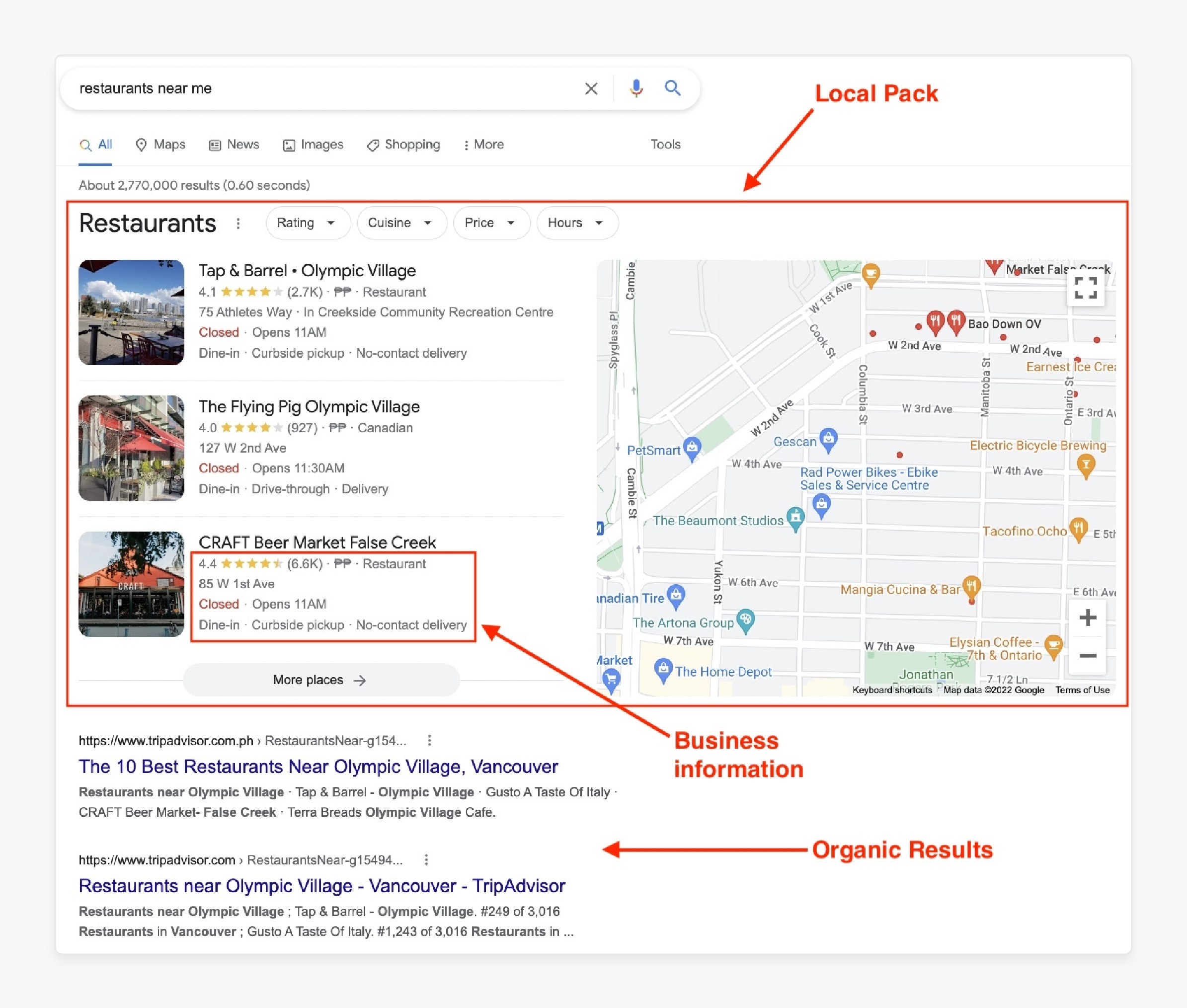
-
Google My Business significantly enhances a business's visibility in search results for the local. It helps attract nearby customers.
-
When users search for a product or service combined with a location (e.g., “shoe store near me”), businesses with optimized GMB profiles have a better chance of appearing in the Google Local Pack. It showcases the top three businesses in a specific area.
-
These listings also show up on Google Maps, making it easy for customers to find the business.
2. Accurate and Trustworthy Business Information
-
GMB allows businesses to keep critical information accurate and consistent across all platforms.
-
Consistency helps search engines build credibility and trust in the business's legitimacy.
-
When users search for a business, GMB listings provide details like:
1. Business hours
2. Special hours (holidays, events)
4. Website links
5. Descriptions
-
The information helps customers make informed decisions and builds trust in your brand.
3. Customer Reviews and Ratings
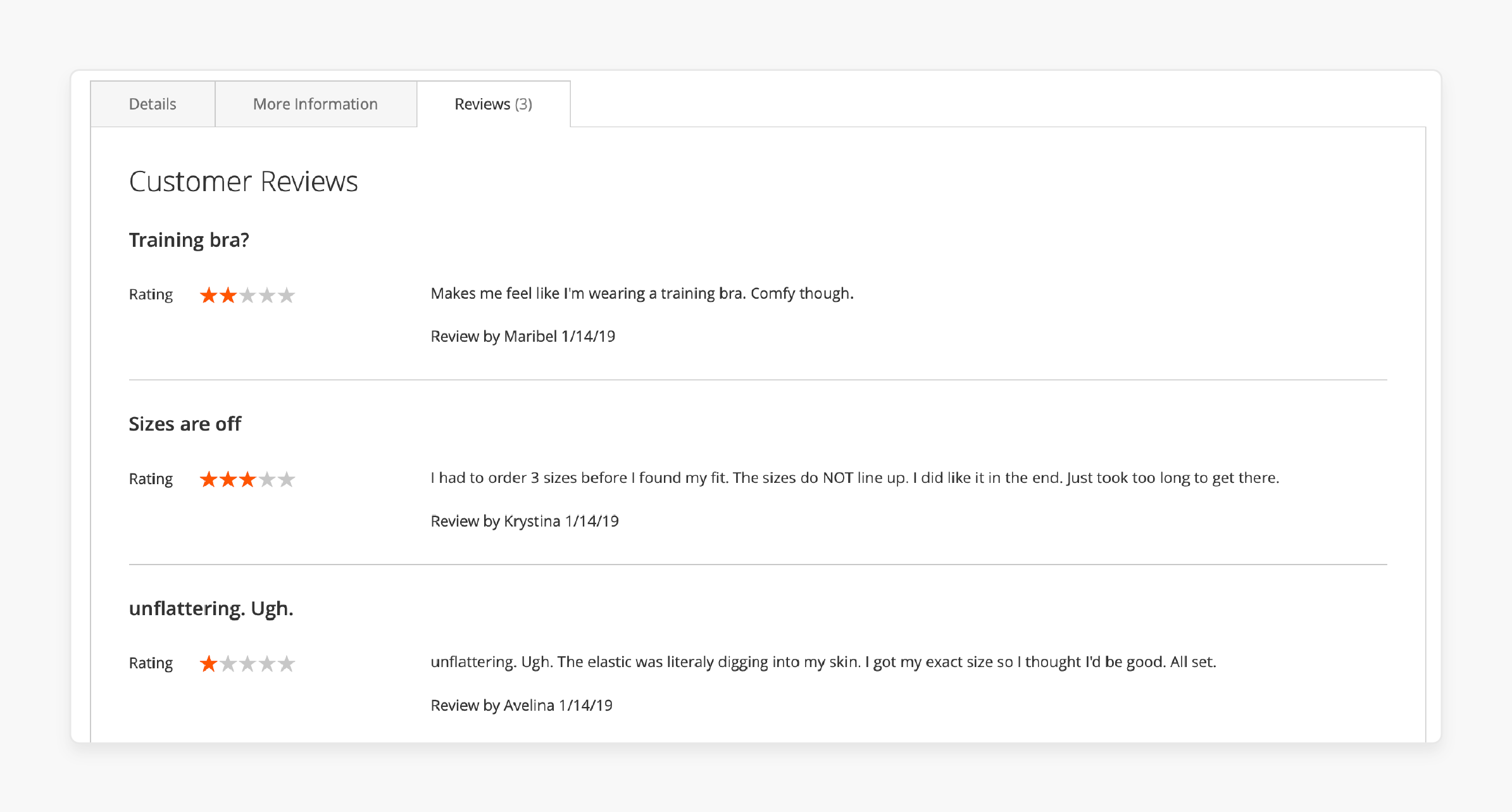
-
Reviews are important for local SEO. They influence both search engines and potential customers.
-
Positive reviews signal trustworthiness and quality. It can elevate your local rankings.
-
Reviews serve as social proof, helping other customers decide whether to engage with your business.
-
You should encourage satisfied customers to leave positive reviews. Also, respond professionally to both positive and negative feedback. It helps foster a good reputation and strengthens your relationship with customers.
4. Increased Customer Engagement
-
GMB provides various tools for directly engaging with customers. It can enhance the customer experience.
-
Features like direct messaging allow customers to ask questions or request more information about products or services.
-
The posts feature lets you share updates about:
1. Promotions
2. New products
3. Special offers
4. Events
-
This level of interaction builds stronger connections with customers and encourages them to visit your online or physical store.
5. Insights and Analytics for Informed Decision-Making
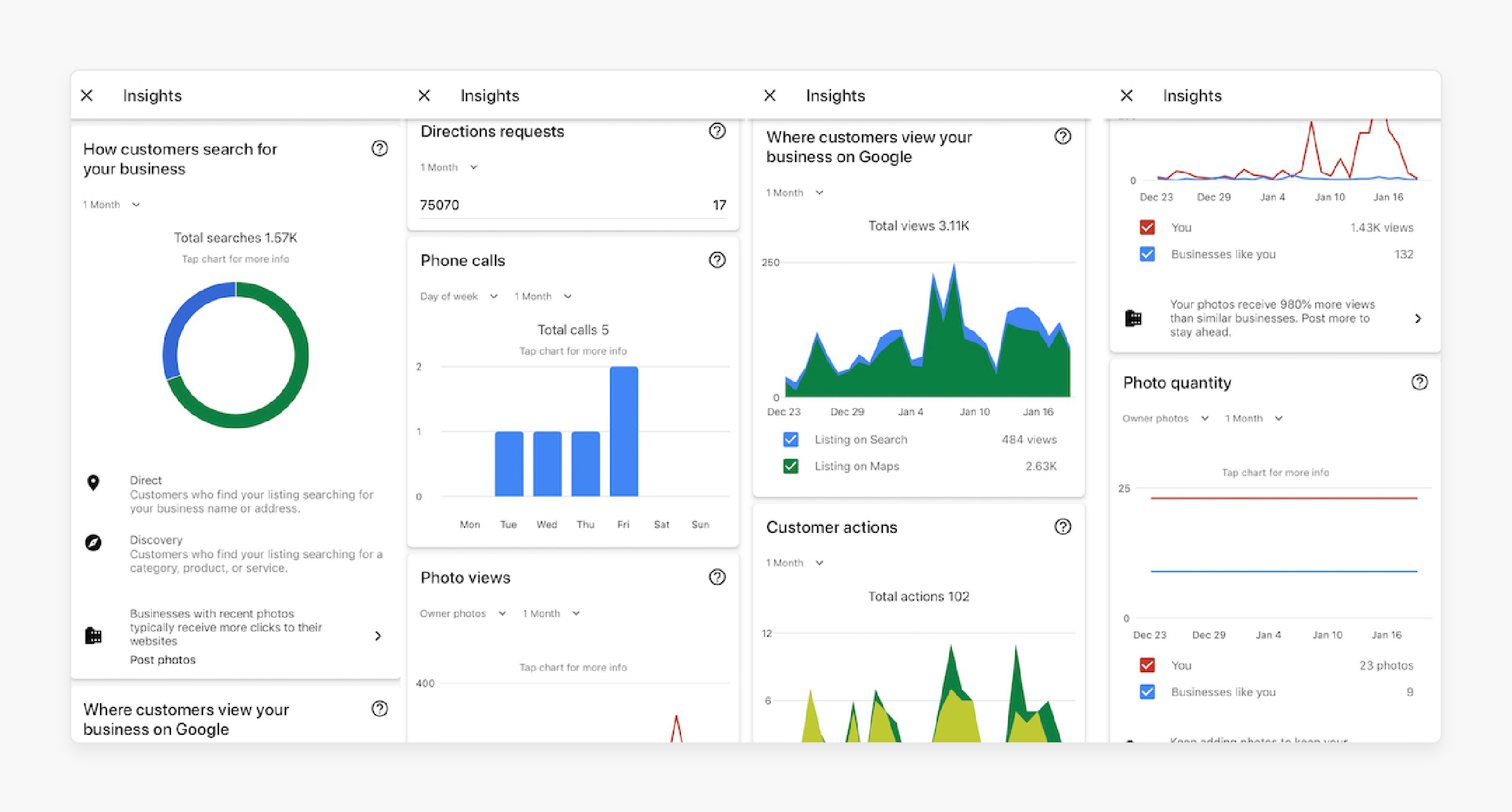
-
GMB offers a wealth of insights and analytics. It helps businesses better understand how customers interact with their listings.
-
GMB provides data on:
1. How customers found your business (direct search, discovery search)
2. Where they came from (search results or Google Maps)
3. What actions did they take after discovering your business (visiting the website, calling, or requesting directions)
-
To make the most of these insights and refine your local SEO strategies, it’s essential to track local rankings regularly. Monitoring how your business ranks in Google Maps and local search results helps identify growth opportunities and areas for improvement.
6. Free and Easy to Use
-
Google Business is a free tool. E-commerce businesses of all sizes can use it to their advantage without worrying about added costs.
-
It is easy to set up. Once your profile is verified, you can start managing and optimizing your information.
-
With little effort and no cost, GMB can significantly boost your local SEO efforts. It helps attract more customers to your business.
7. Trust and Credibility
-
Having a GMB profile provides an added layer of credibility to your business.
-
Potential customers are more likely to trust a business that has a verified presence on Google.
-
A well-maintained GMB profile with plenty of accurate information and regular updates conveys professionalism and trustworthiness.
-
Businesses without a GMB profile or with incomplete information may seem less legitimate.
How Can I Optimize My Ecommerce Website for Local Search Queries?
1. Claim and Optimize Google My Business (GMB)
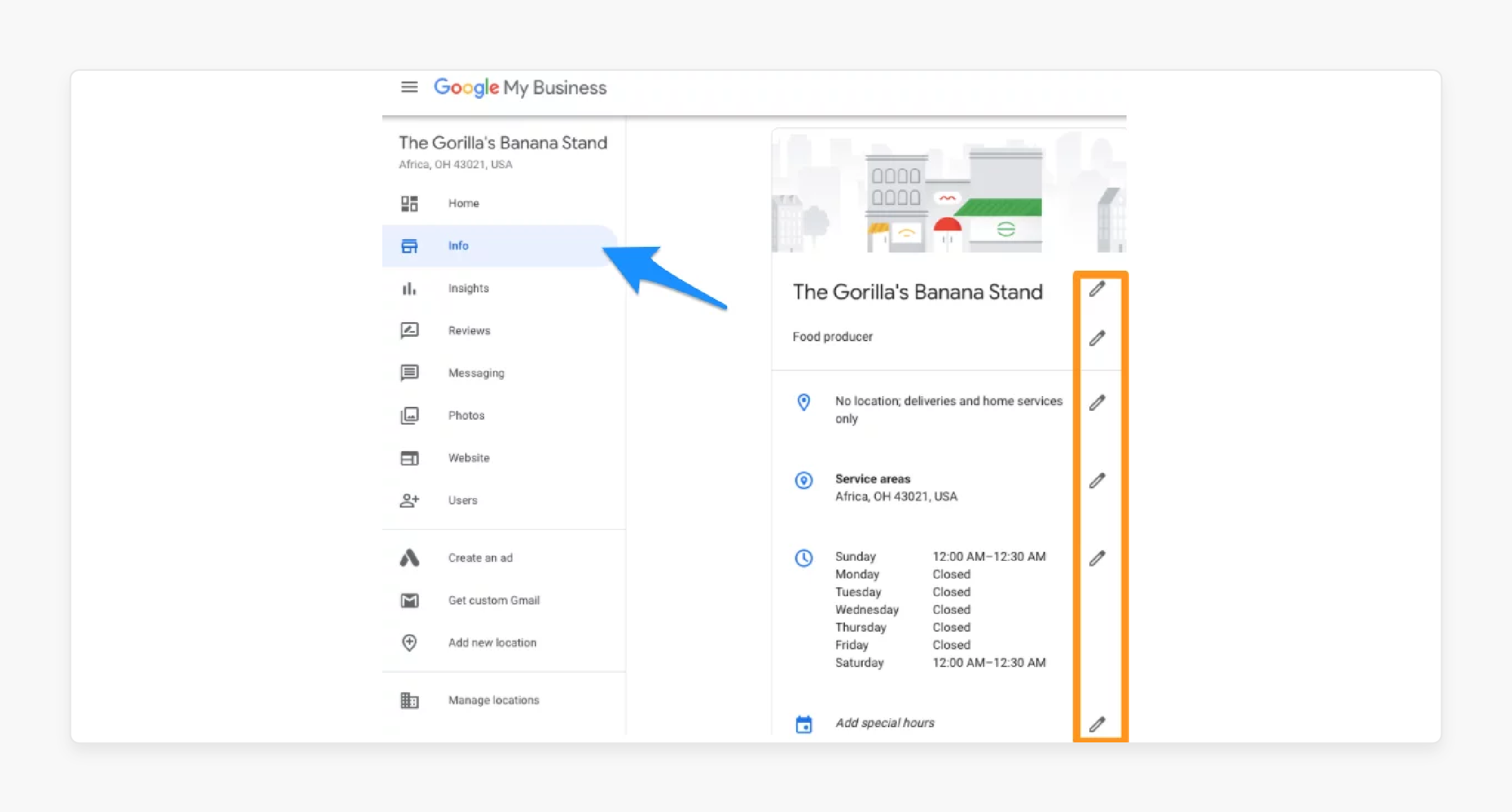
-
Make sure your GMB profile is fully verified.
-
Ensure correct:
1. Business name
2. Address
3. Phone number
4. Hours of operation
5. Website URL
-
Choose business categories that reflect your products and services.
-
Include high-quality images and a keyword-optimized business description.
2. Optimize for Local Keywords
-
Identify local keywords relevant to your products and services, such as:
1. “[product] in [city]”
2. “buy [product] near me”
-
Add these keywords to:
1. Page titles
2. Meta descriptions
3. Product descriptions
4. Blog content
3. Create Location-Specific Content
-
If your business serves multiple locations including physical, virtual offices, or virtual mailing addresses, create dedicated pages for each one, including:
1. Relevant local content
2. Keywords
3. Contact details
-
Write content about local events, news, or stories related to your industry and region. Highlight local relevance.
4. Ensure Consistent NAP Information
-
Make sure your NAP is consistent across all platforms, including your:
1. Website
2. Social media
3. Directories
4. Review sites
-
Add local business schema markup to your website. It will help search engines better understand your location and services.
5. Build Local Backlinks
-
Earn backlinks from:
1. Local blogs
2. News outlets
3. Business Directories
-
Partner with local events or charities to get your business mentioned and linked to on their websites. You can also collaborate with link building agencies like Marketing Lad to strategically acquire high-quality backlinks tailored for local SEO.
-
Include location-specific CTAs such as “Shop online and pick up in [city]” or “Call our [city] store today.”
6. Leverage Social Media for Local Engagement
-
Tag your business’s location in social media posts.
-
Post content and promotions targeting your local audience. You should also engage with local influencers or community groups.
7. List Your Business in Online Directories
-
Get your business listed in reputable local directories like:
1. Yelp
2. Yellow Pages
3. Bing Places
-
It will help increase visibility.
Metrics to Measure the Success of Ecommerce Local Seo Campaign
| Metrics | Explanation |
|---|---|
| 1. Local Search Rankings | Track how your website ranks for local keywords (e.g., "best [product] in [city]") on search engines like Google and Bing. Monitor your placement in Google’s Local Pack and Maps. These help in local visibility. |
| 2. Website Traffic from Local Sources | Analyze the amount of organic traffic coming from search queries for the local using tools like Google Analytics. Look specifically at users from local regions. Track traffic from local listings and backlinks from local websites. |
| 3. Click-Through Rate (CTR) | Measure the percentage of clicks your website receives from local search engine results pages (SERPs). A higher CTR indicates your meta titles and descriptions are compelling to searchers for local. |
| 4. Conversion Rate from Local Traffic | Track conversions and sales specifically coming from local search traffic. Use Google Analytics to set up location-based goals and e-commerce tracking. Monitor the number of phone calls or contact form submissions from local customers. It indicates strong local engagement. |
| 5. Customer Reviews and Ratings | Track the number of new customer reviews on platforms and industry-specific directories. Monitor the overall sentiment and star ratings of reviews. An increase in positive reviews reflects improved customer satisfaction and reputation. Measure your response rate to customer reviews. It can impact your local SEO rankings. |
| 6. Bounce Rate of Local Pages | Analyze the bounce rate for location-specific landing pages. A high bounce rate may indicate that the content isn’t relevant to local visitors. A low bounce rate suggests they are engaging with your content. |
| 7. Foot Traffic and In-Store Visits | If you have a physical store, track in-store visits and correlate them with local SEO efforts. It can be measured using customer surveys, loyalty programs, or foot traffic analytics. Measure how many local visitors convert into paying customers once they visit your physical store. |
| 8. Local Backlinks | Track the growth of backlinks from local websites, blogs, and directories. More backlinks from authoritative local sources can improve your local SEO performance. Monitor how much referral traffic is being driven by these local backlinks. |
Audit your entire store with a full SEO audit for ecommerce sites covering technical, content, and link factors.
FAQs
1. How does Local search engine optimization benefit an e-commerce business?
Local SEO helps an e-commerce business attract more nearby customers. It is by improving its visibility in location-based searches. It helps drive more foot traffic to physical stores and build stronger community connections.
2. How can I optimize my website for Local SEO?
To optimize your website for local SEO, start by ensuring consistent NAP across all platforms. Use local keywords in your content, titles, and meta tags, and build backlinks from reputable local websites. It helps improve your store’s visibility in search outcomes for the locals.
3. What SEO tools can help with Local SEO for e-commerce?
There are several SEO tools designed to assist with ecommerce SEO, such as Moz, SEMrush, and BrightLocal. These tools help track keyword rankings and audit your website for local SEO factors.
4. What are the best strategies for Local SEO for e-commerce businesses?
A guide to local SEO strategies for e-commerce includes optimizing your Google Business profile. It is done using local keywords, gathering positive reviews, and building local backlinks. These strategies help improve your e-commerce store’s presence in search outcomes and attract more nearby customers.
Summary
Local SEO for ecommerce helps online stores appear in location-based searches and drive more traffic. The article uncovers the several components of local SEO, including:
-
Optimize GMB to ensure accurate business information and engage with customer reviews.
-
Use consistent NAP information to maintain consistency across websites.
-
Incorporate local keywords to improve local search visibility.
-
Build local backlinks and earn links from local businesses to strengthen search rankings.
Looking to boost your local visibility and drive more nearby customers with effective Local SEO strategies? Optimize your ecommerce site with managed Magento hosting.






